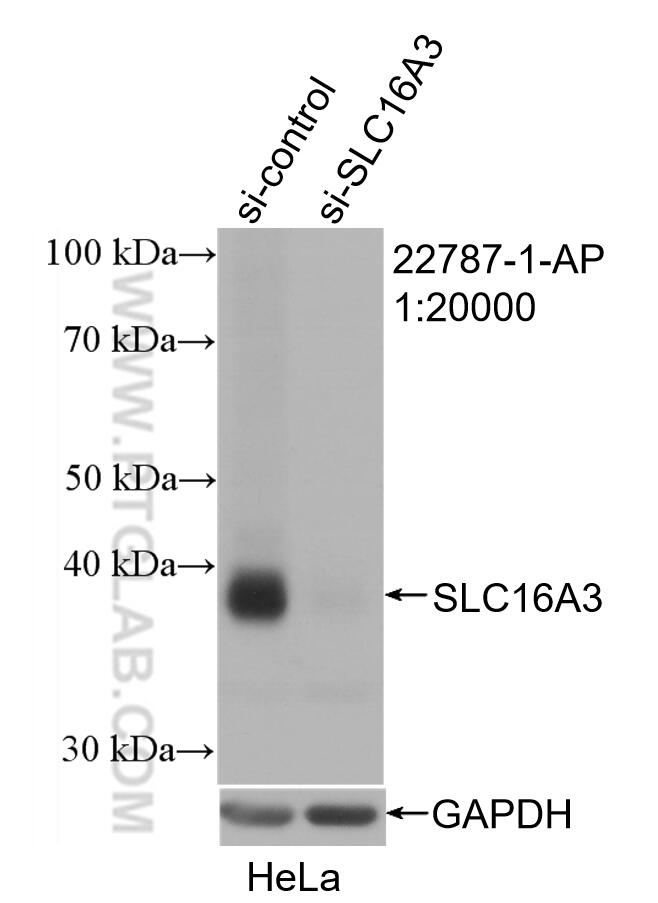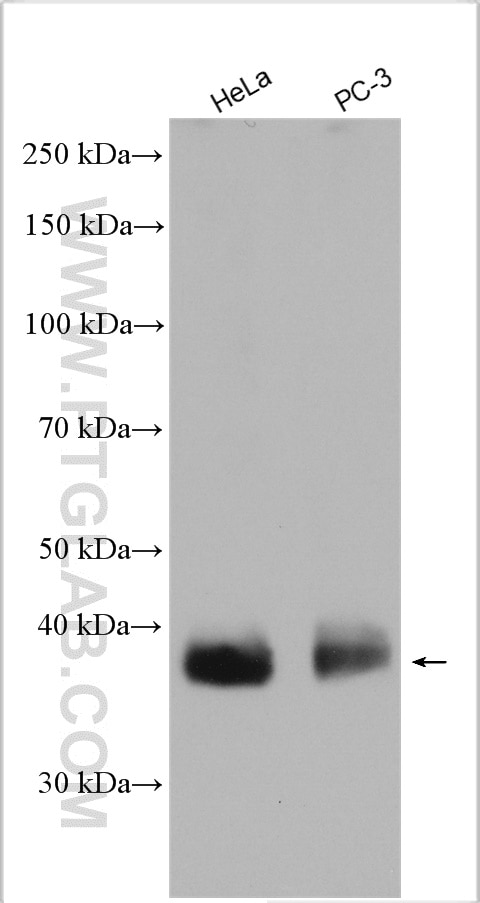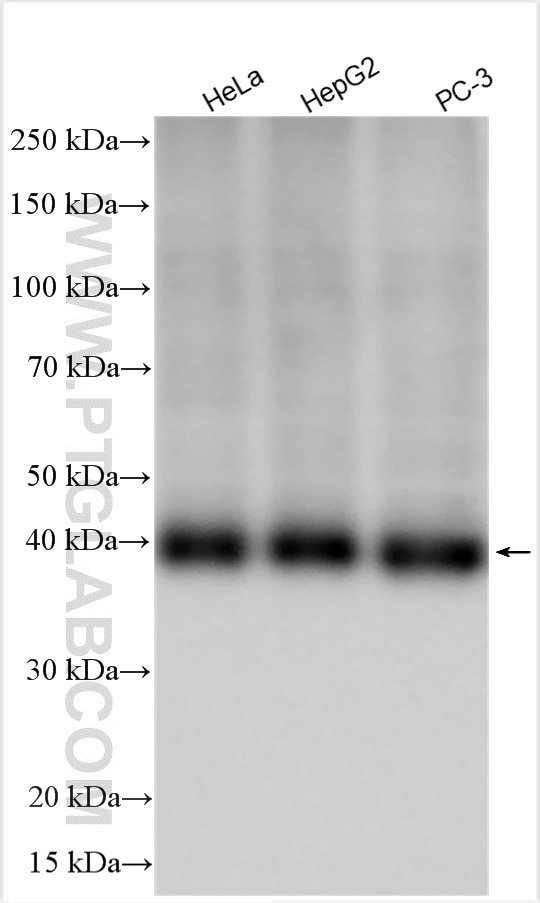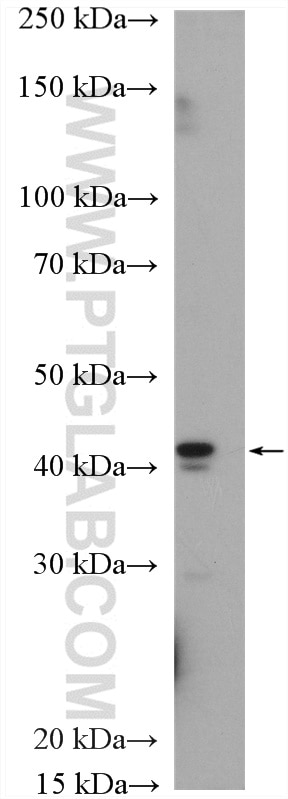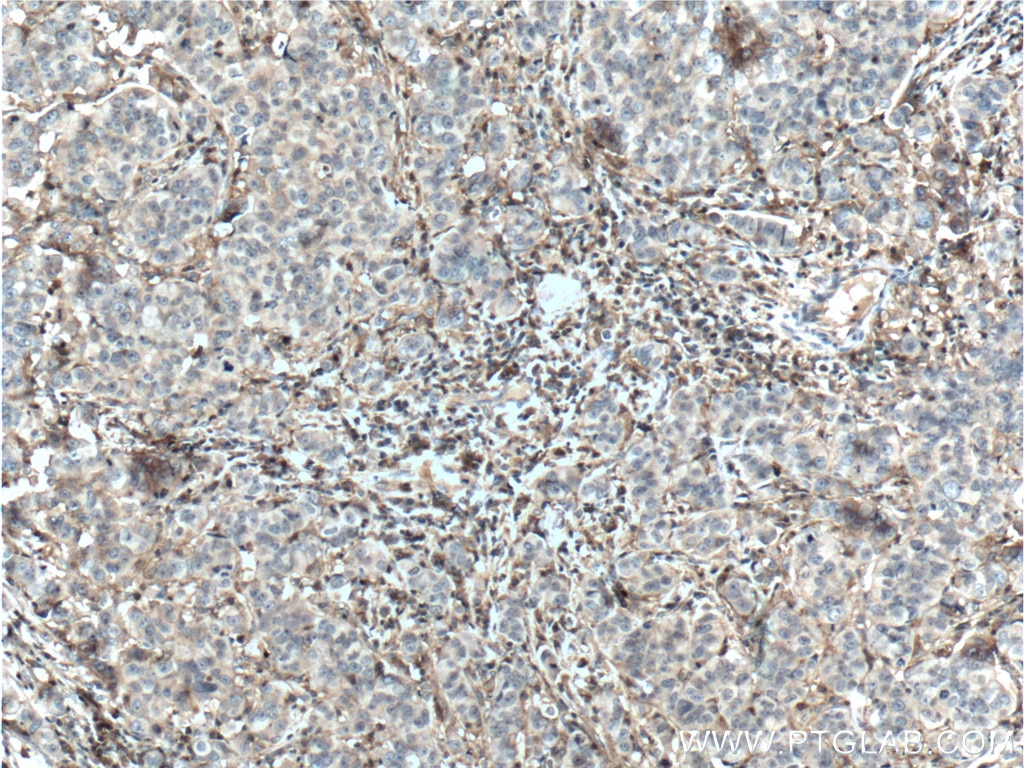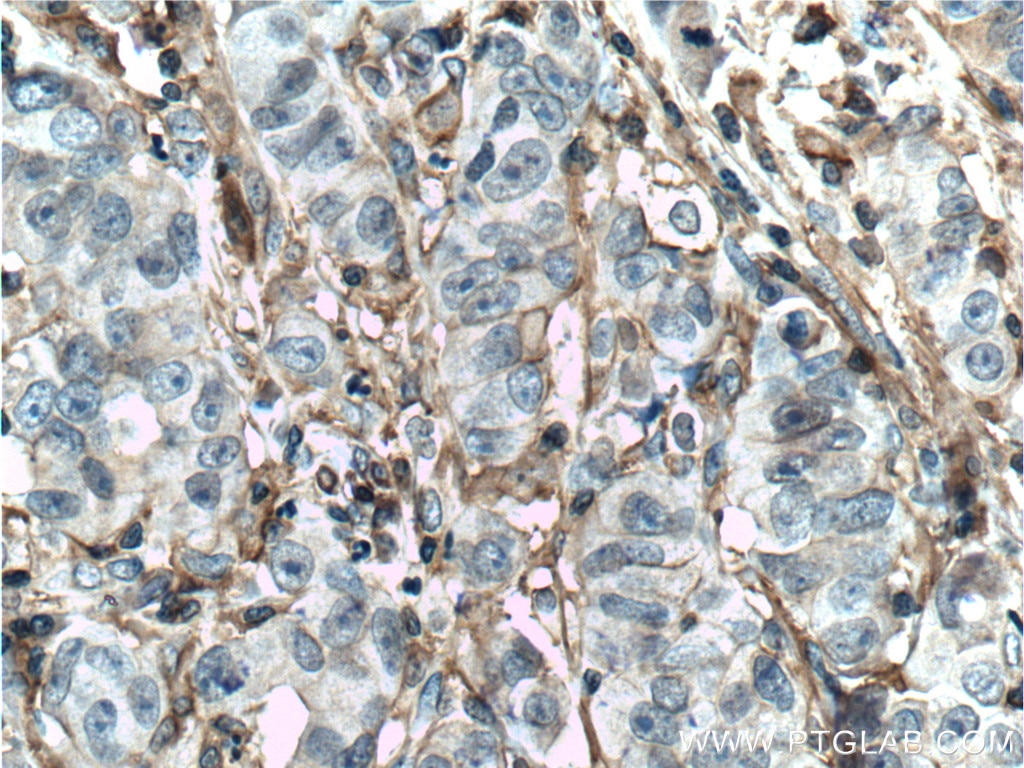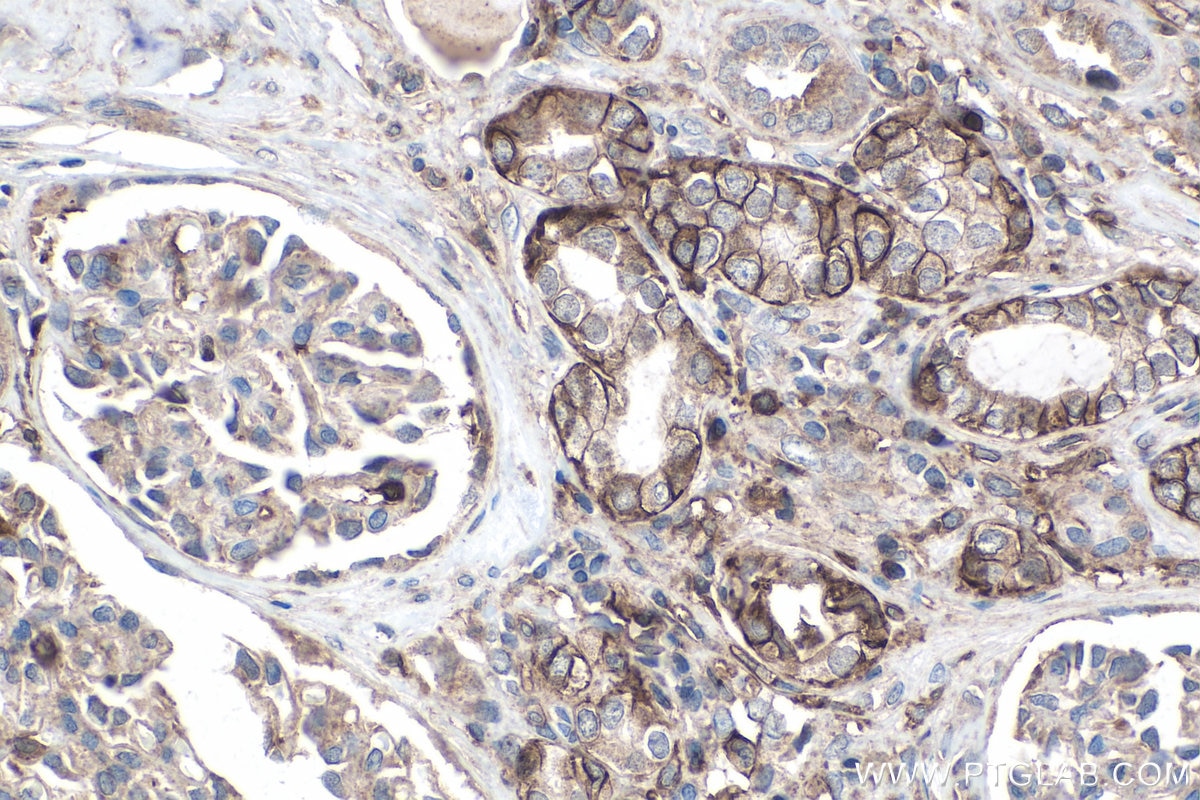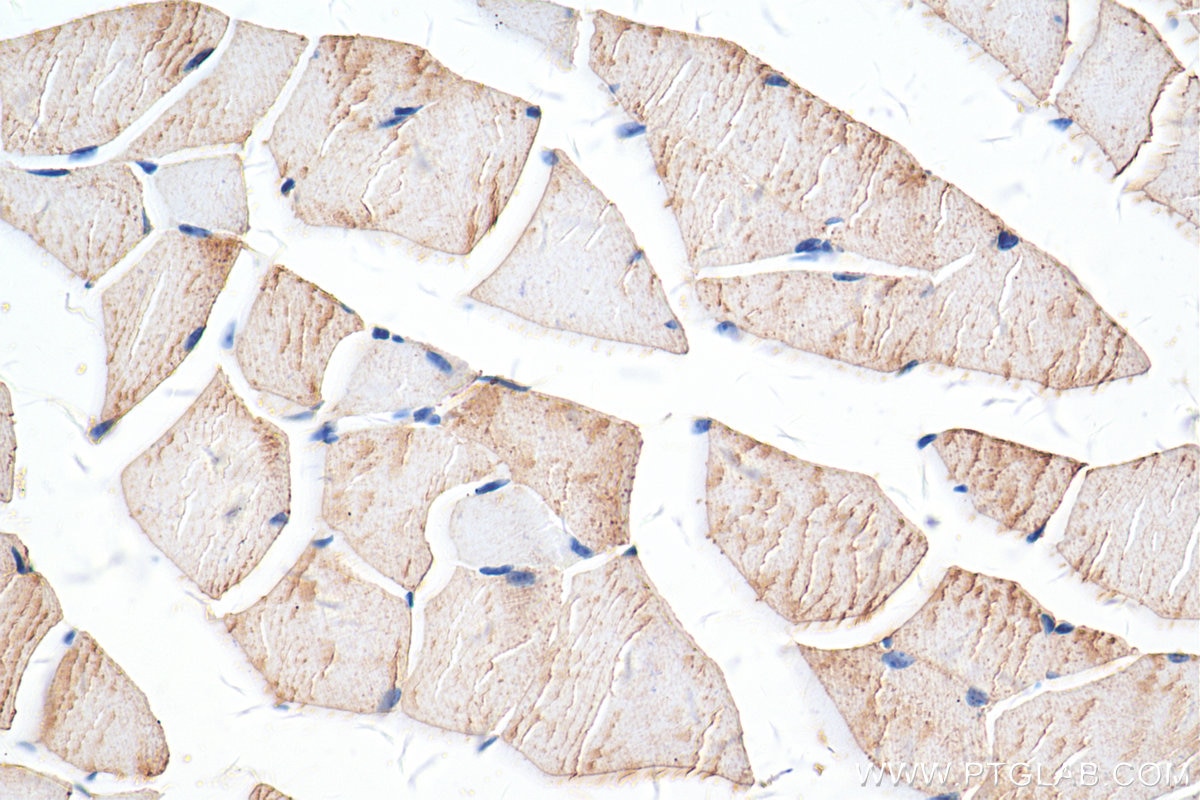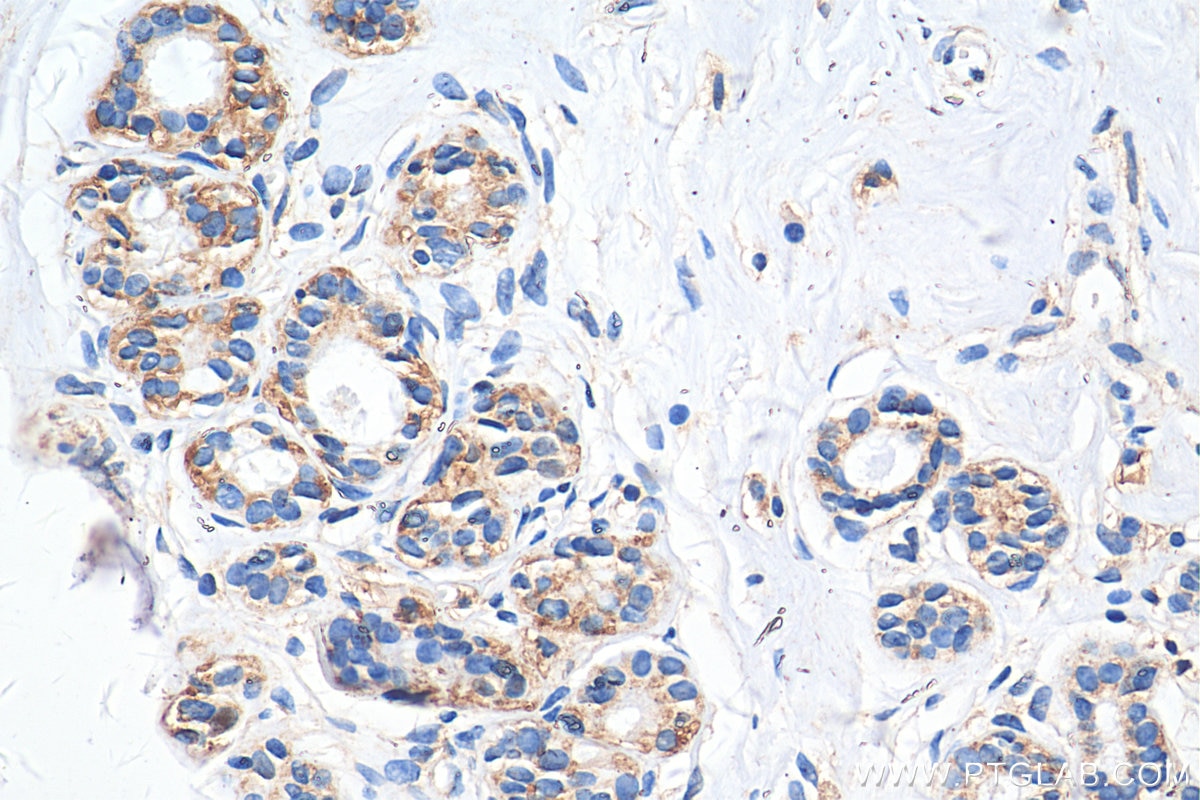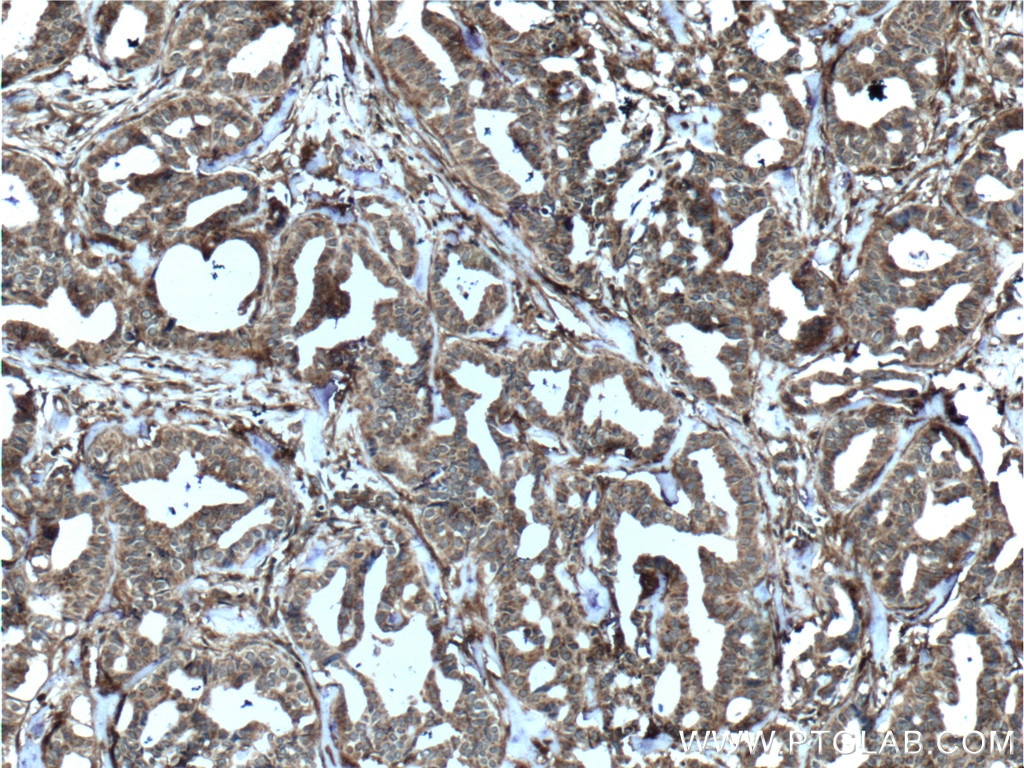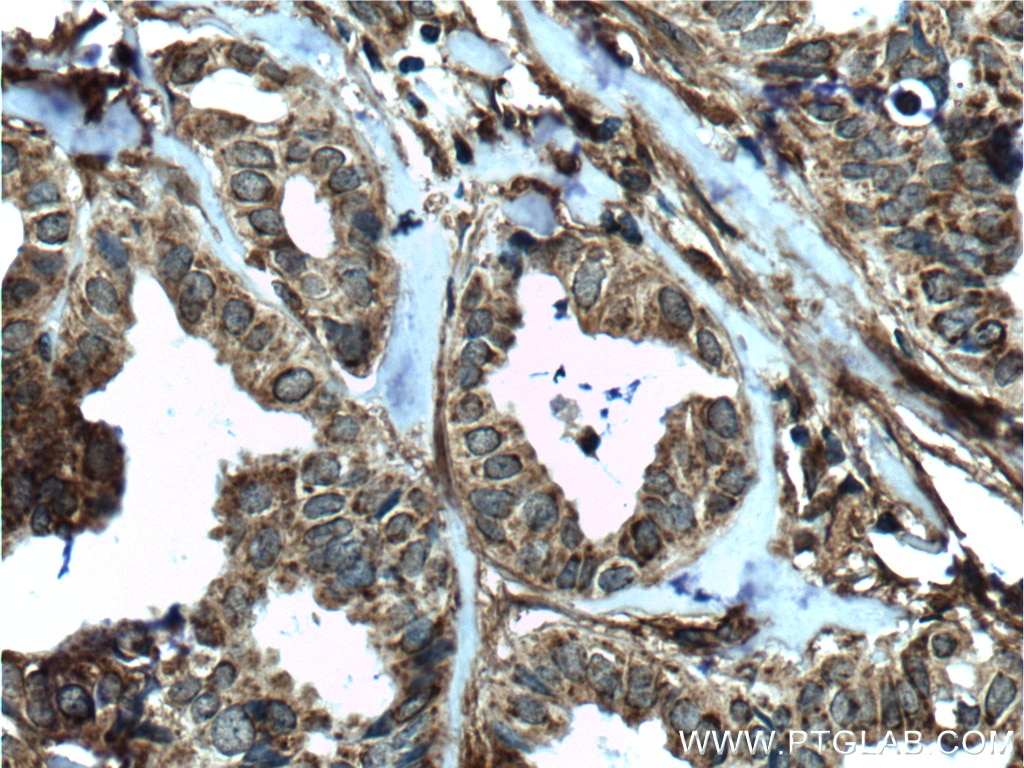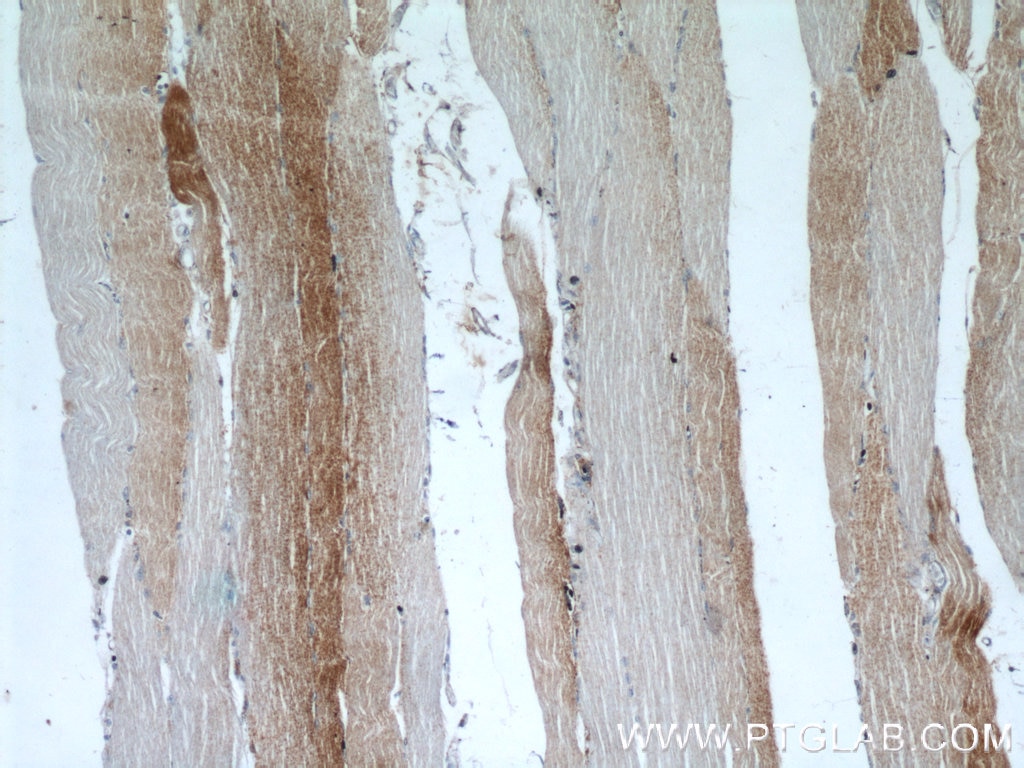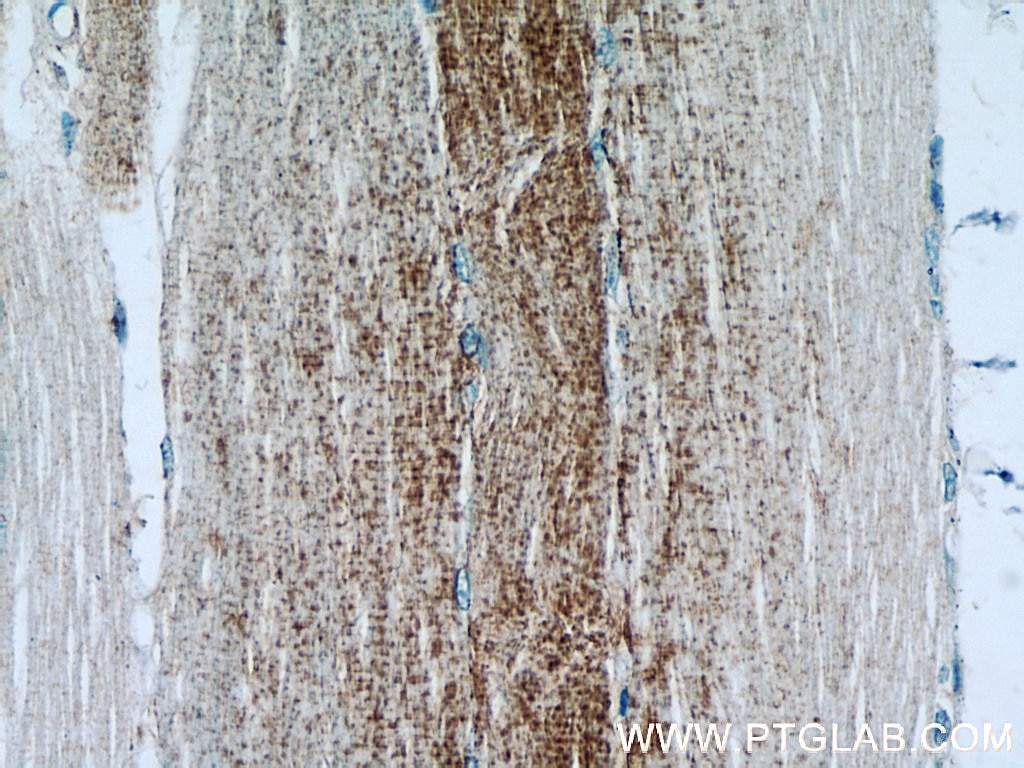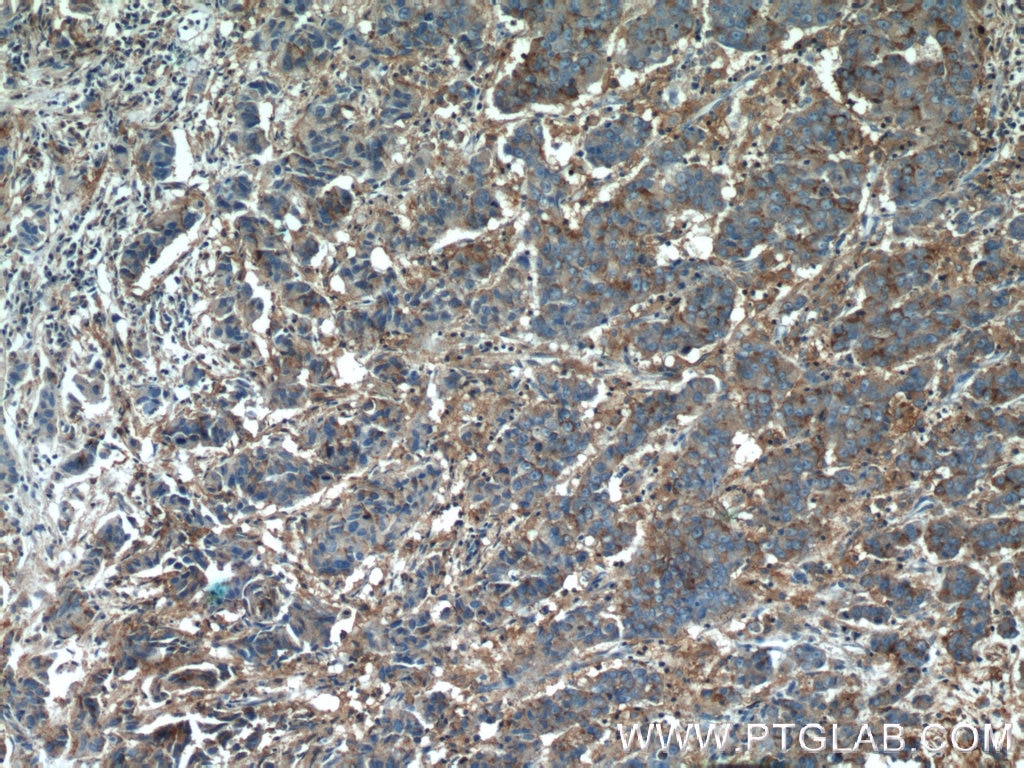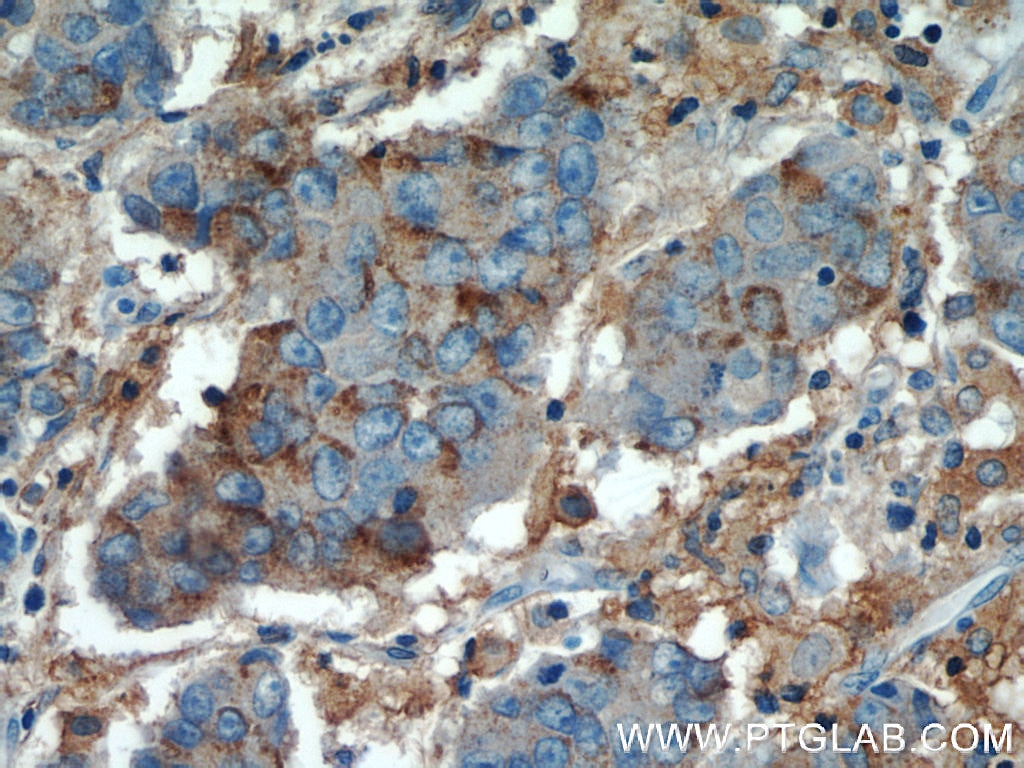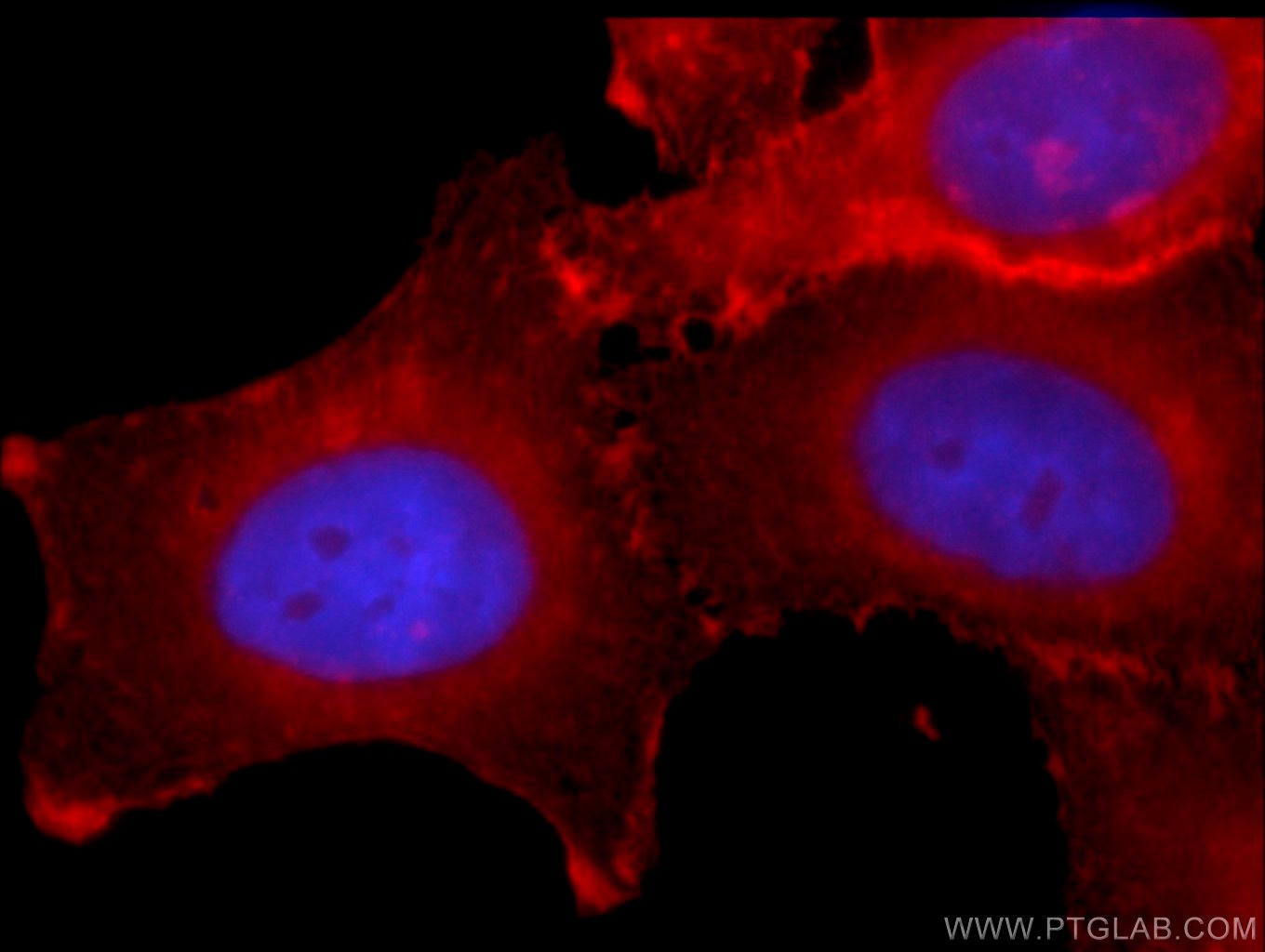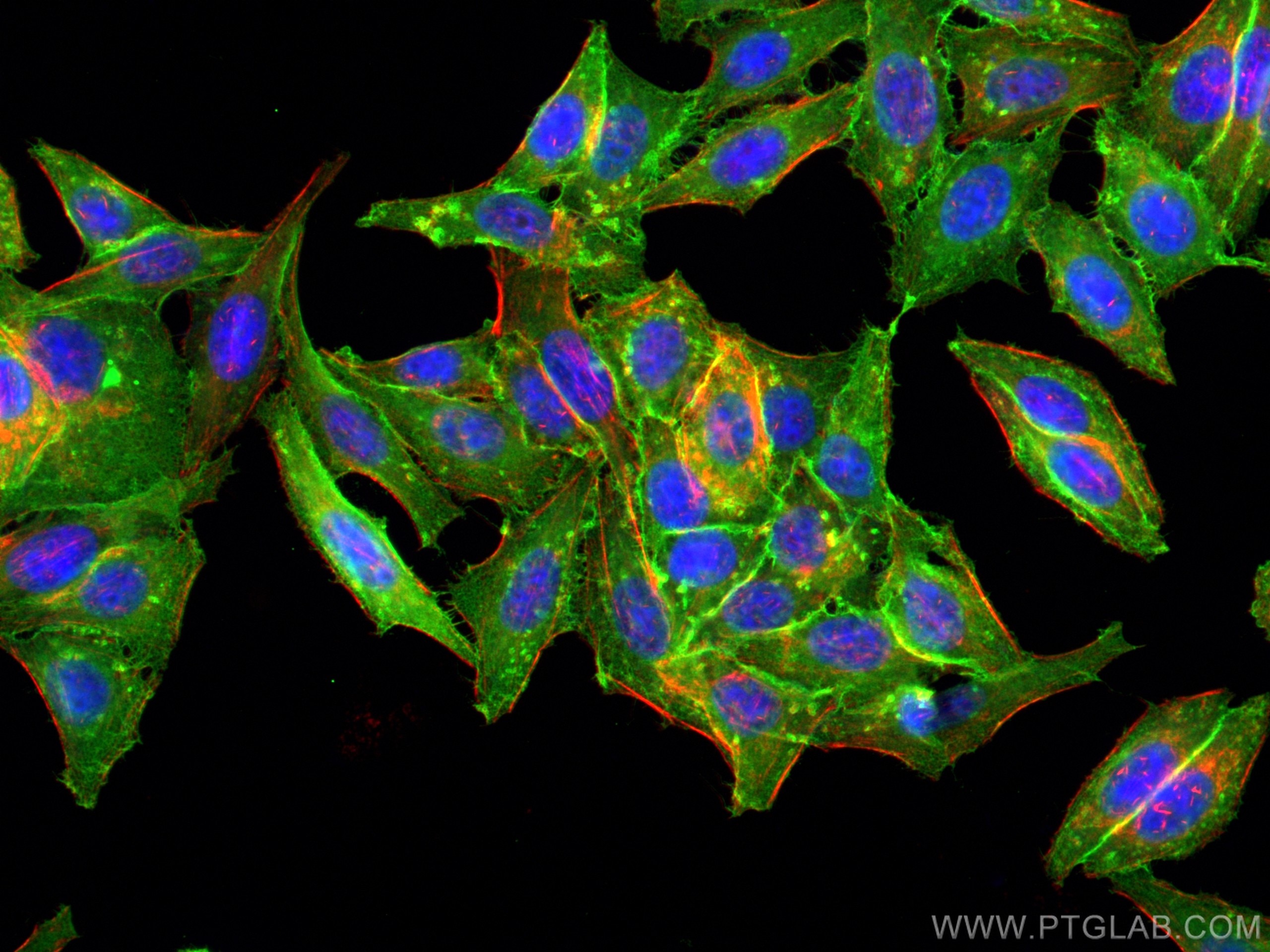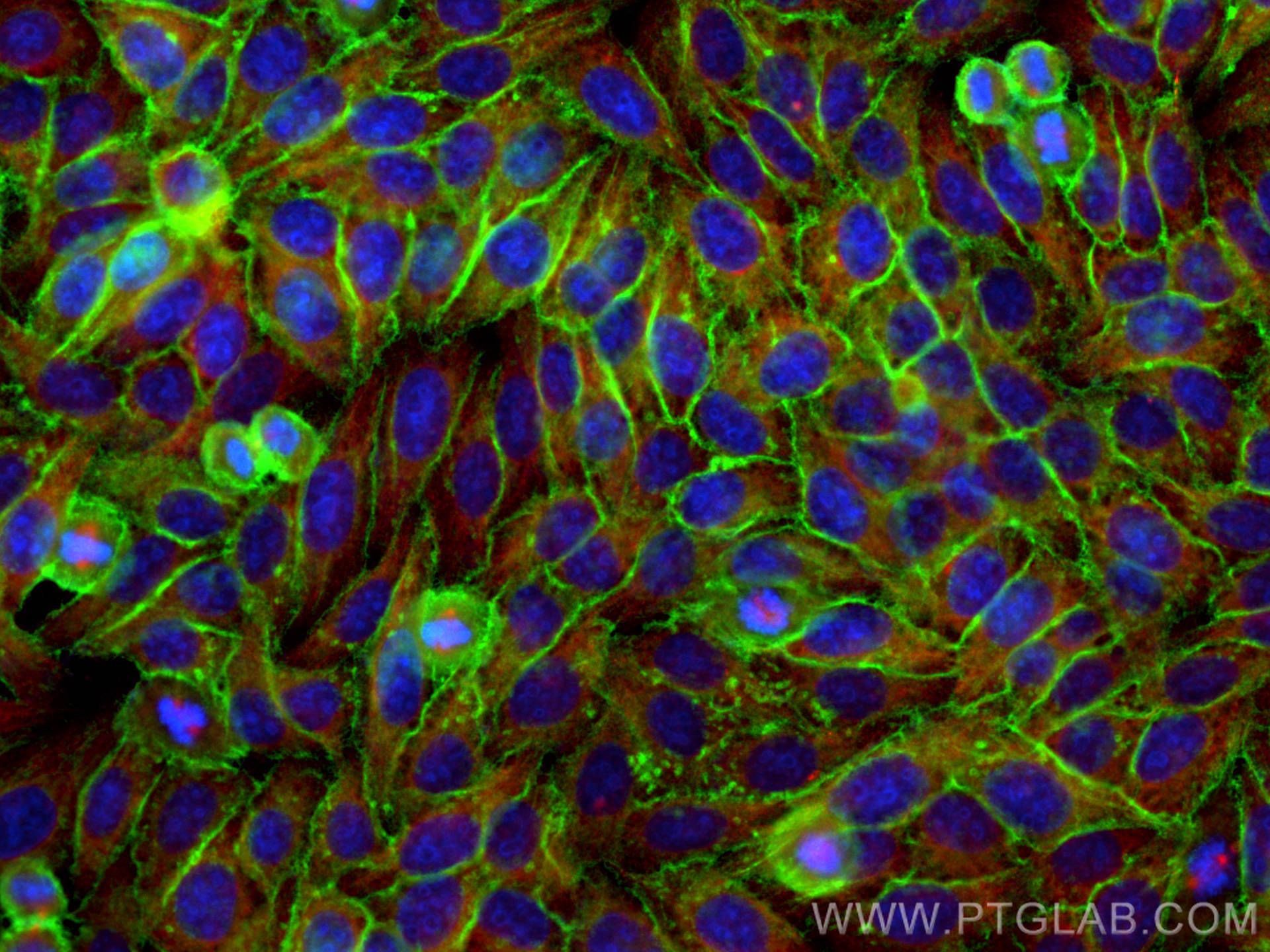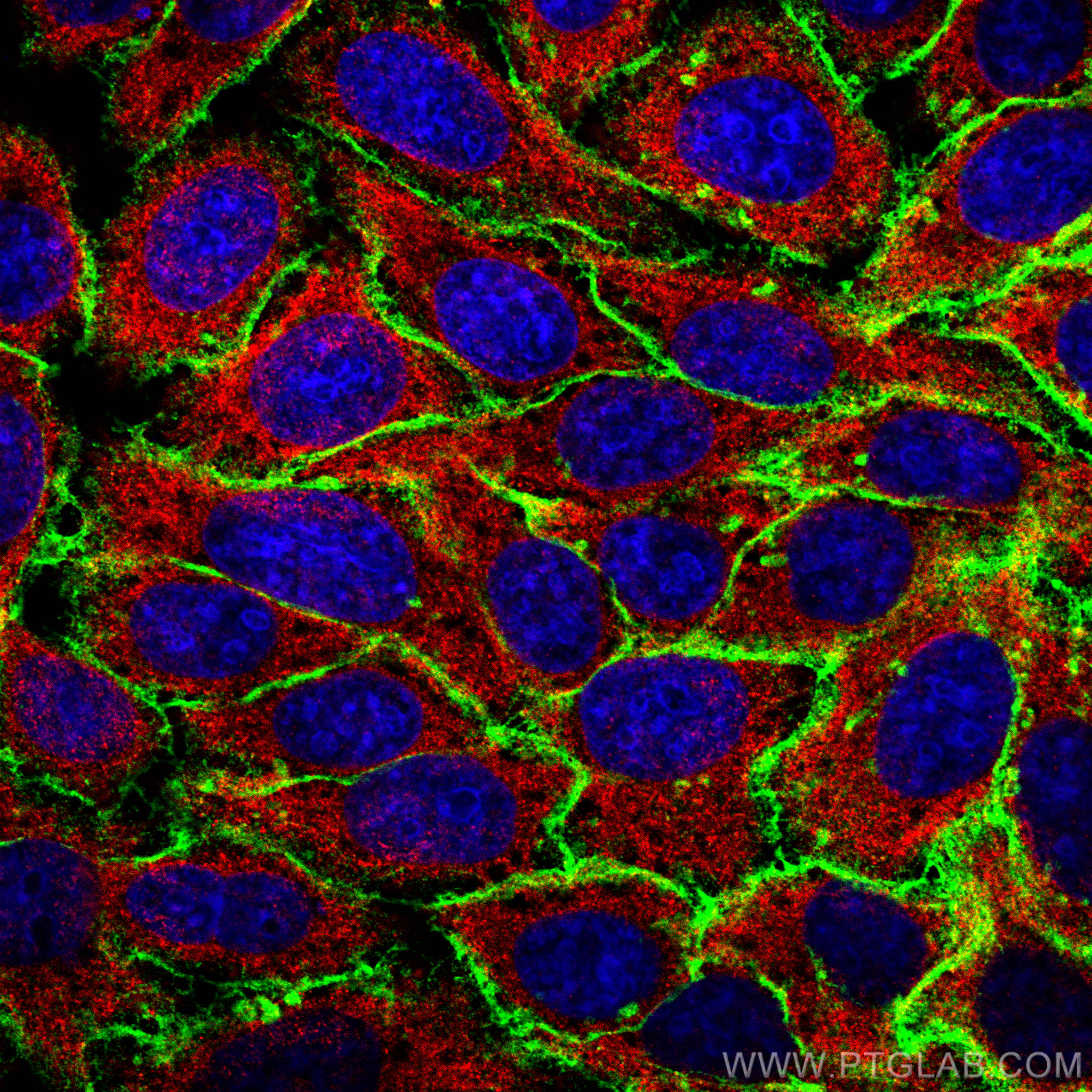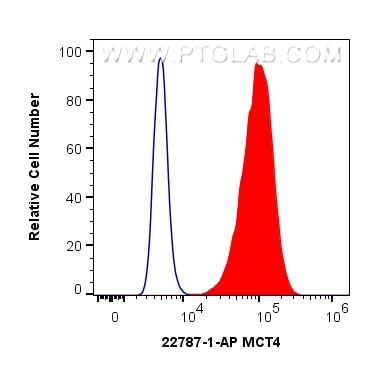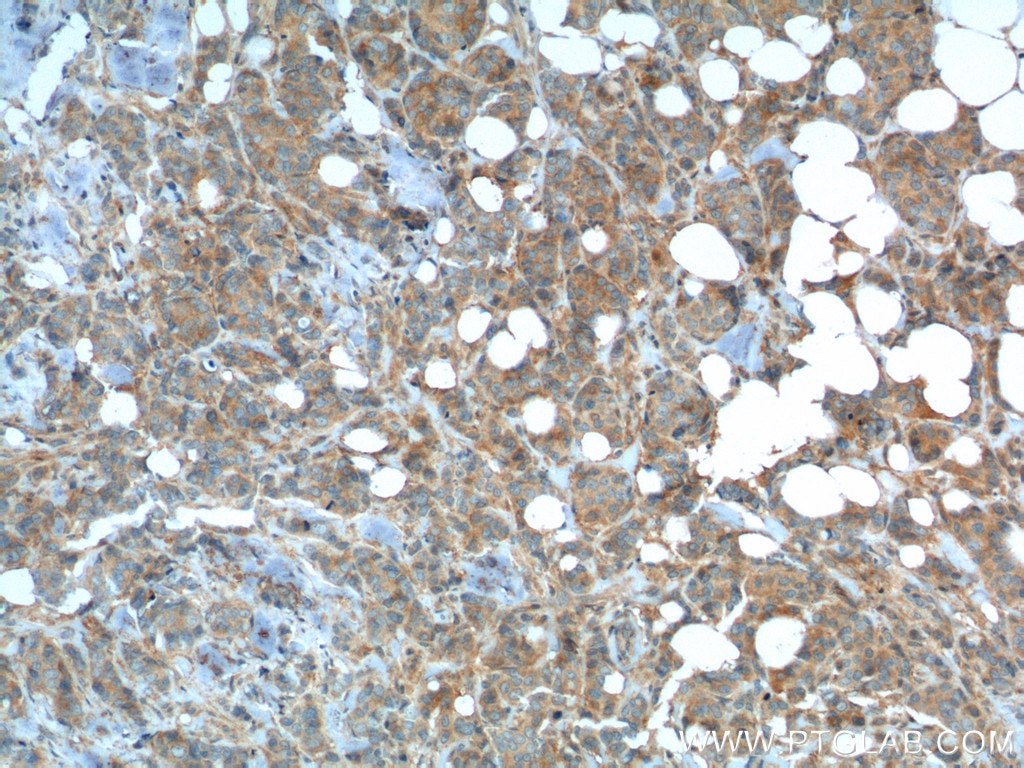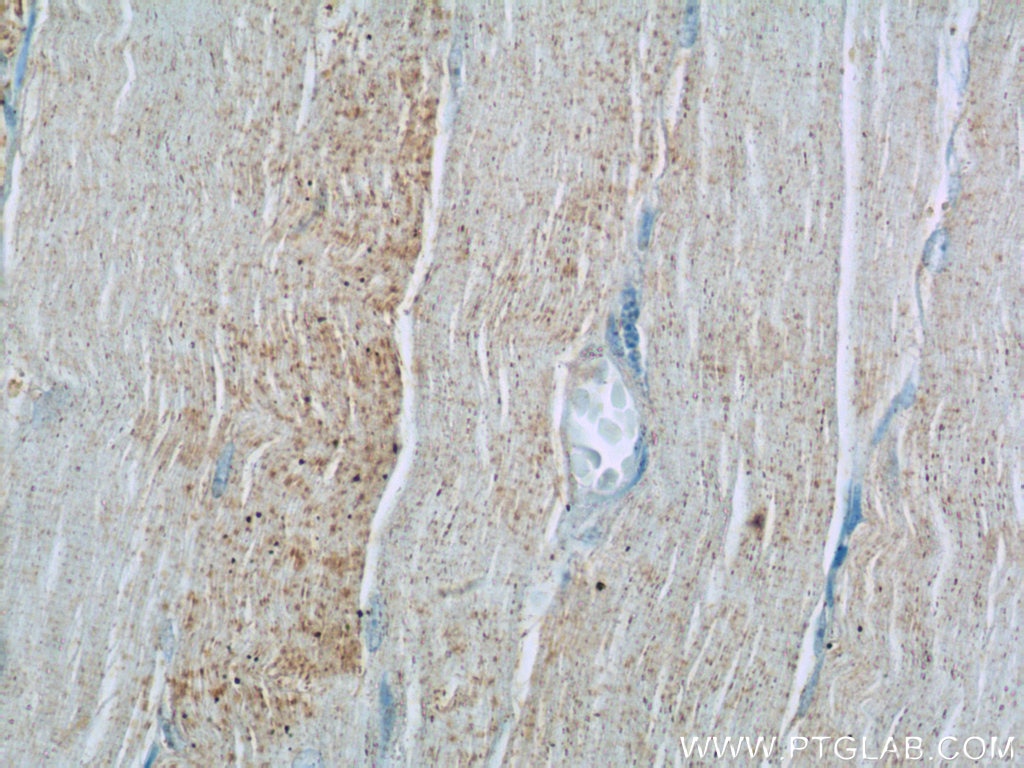- Phare
- Validé par KD/KO
Anticorps Polyclonal de lapin anti-MCT4
MCT4 Polyclonal Antibody for WB, IF, IHC, ELISA, FC (Intra)
Hôte / Isotype
Lapin / IgG
Réactivité testée
Humain, rat, souris et plus (1)
Applications
WB, IHC, IF/ICC, FC (Intra), IP, ELISA
Conjugaison
Non conjugué
N° de cat : 22787-1-AP
Synonymes
Galerie de données de validation
Applications testées
| Résultats positifs en WB | cellules HeLa, cellules HepG2, cellules PC-3, tissu de muscle squelettique de rat |
| Résultats positifs en IHC | tissu de cancer du sein humain, tissu de cancer de la prostate humain, tissu de carcinome à cellules rénales humain, tissu de muscle squelettique de souris, tissu de muscle squelettique humain il est suggéré de démasquer l'antigène avec un tampon de TE buffer pH 9.0; (*) À défaut, 'le démasquage de l'antigène peut être 'effectué avec un tampon citrate pH 6,0. |
| Résultats positifs en IF/ICC | cellules HepG2, |
| Résultats positifs en FC (Intra) | cellules HepG2 |
| Résultats positifs en cytométrie | cellules HepG2 |
Dilution recommandée
| Application | Dilution |
|---|---|
| Western Blot (WB) | WB : 1:2000-1:20000 |
| Immunohistochimie (IHC) | IHC : 1:1000-1:4000 |
| Immunofluorescence (IF)/ICC | IF/ICC : 1:200-1:800 |
| Flow Cytometry (FC) (INTRA) | FC (INTRA) : 0.80 ug per 10^6 cells in a 100 µl suspension |
| Flow Cytometry (FC) | FC : 0.80 ug per 10^6 cells in a 100 µl suspension |
| It is recommended that this reagent should be titrated in each testing system to obtain optimal results. | |
| Sample-dependent, check data in validation data gallery | |
Applications publiées
| KD/KO | See 9 publications below |
| WB | See 54 publications below |
| IHC | See 9 publications below |
| IF | See 8 publications below |
| IP | See 1 publications below |
| FC | See 3 publications below |
Informations sur le produit
22787-1-AP cible MCT4 dans les applications de WB, IHC, IF/ICC, FC (Intra), IP, ELISA et montre une réactivité avec des échantillons Humain, rat, souris
| Réactivité | Humain, rat, souris |
| Réactivité citée | rat, Chèvre, Humain, souris |
| Hôte / Isotype | Lapin / IgG |
| Clonalité | Polyclonal |
| Type | Anticorps |
| Immunogène | MCT4 Protéine recombinante Ag18788 |
| Nom complet | solute carrier family 16, member 3 (monocarboxylic acid transporter 4) |
| Masse moléculaire calculée | 465 aa, 49 kDa |
| Poids moléculaire observé | 38-42 kDa |
| Numéro d’acquisition GenBank | BC112269 |
| Symbole du gène | MCT4 |
| Identification du gène (NCBI) | 9123 |
| Conjugaison | Non conjugué |
| Forme | Liquide |
| Méthode de purification | Purification par affinité contre l'antigène |
| Tampon de stockage | PBS avec azoture de sodium à 0,02 % et glycérol à 50 % pH 7,3 |
| Conditions de stockage | Stocker à -20°C. Stable pendant un an après l'expédition. L'aliquotage n'est pas nécessaire pour le stockage à -20oC Les 20ul contiennent 0,1% de BSA. |
Informations générales
The monocarboxylate transporter 4 (MCT4, also known as SLC16A3) is involved in the transportation of metabolically important monocarboxylates such as lactate, pyruvate, acetate and ketone bodies. It is widely expressed, particularly strongly in glycolytic tissues such as white skeletal muscle fibres, astrocytes, white blood cells, chondrocytes and some mammalian cell lines. MCT4 is also linked to tumor biology because it mediates lactate transport across membranes resulting in antiapoptotic effects.
Protocole
| Product Specific Protocols | |
|---|---|
| WB protocol for MCT4 antibody 22787-1-AP | Download protocol |
| IHC protocol for MCT4 antibody 22787-1-AP | Download protocol |
| IF protocol for MCT4 antibody 22787-1-AP | Download protocol |
| Standard Protocols | |
|---|---|
| Click here to view our Standard Protocols |
Publications
| Species | Application | Title |
|---|---|---|
Nat Cancer Targeting the bicarbonate transporter SLC4A4 overcomes immunosuppression and immunotherapy resistance in pancreatic cancer | ||
Nat Metab Lactylome analysis suggests lactylation-dependent mechanisms of metabolic adaptation in hepatocellular carcinoma
| ||
Adv Sci (Weinh) SETDB1 Methylates MCT1 Promoting Tumor Progression by Enhancing the Lactate Shuttle | ||
Adv Healthc Mater Jet-Lagged Nanoparticles Enhanced Immunotherapy Efficiency through Synergistic Reconstruction of Tumor Microenvironment and Normalized Tumor Vasculature. | ||
Proc Natl Acad Sci U S A Monocarboxylate transporter antagonism reveals metabolic vulnerabilities of viral-driven lymphomas. |
Avis
The reviews below have been submitted by verified Proteintech customers who received an incentive forproviding their feedback.
FH Aderonke (Verified Customer) (05-26-2023) | Immunoblotting was done to show the expression of MCT 4 in five head and neck cancer cell lines; only three of the five cell lines demonstrated this. An inhibitor was thereafter used at two differenct concentrations in UM-SCC-17A, and the expression decreased with increasing concentrations.
|
FH Juan (Verified Customer) (07-15-2019) | We used the antibody for WB method. The band backgound is clear.
|
